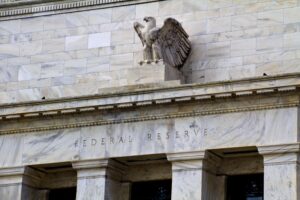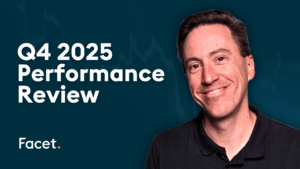Learn library
Discover our approach to personal finance through our library of free articles. Gain the financial knowledge you need to enrich every facet of your life.
Explore by topic
Career Changes
Resources for everything from navigating open enrollment to starting a side hustle. ViewFinancial planning & wellness
Get guidance on budgeting, saving, and building a plan that supports your full life — not just retirement.

Five “can-do” resolutions that can kickstart your finances in 2026.
Many New Year’s resolutions get broken. And broken quickly. We’d like to share a simple strategy that can help you fix that – all while giving your finances in 2026 a kickstart. First, ever hear of “Quitter’s Day?” It’s the day that people start dropping their New Year’s fitness resolutions in big numbers. It falls on the second Friday of

Unlocking the potential of your 401(k): Tax benefits, contributions, and investment strategies.
401(k) plans are retirement accounts established by companies, offering substantial tax benefits and flexibility. These accounts provide a secure avenue for employees to save for their future, ensuring financial stability during retirement. For most workers, they are the backbone of their retirement strategy. Whether you are enrolling in a new plan, on your way to saving for retirement, or somewhere

A year-end financial checklist: 2025 complete guide.
The end of the year is a time to make critical planning decisions for your taxes, investments, and savings. It’s also a time to reflect on the previous year and consider what may change in the year ahead. Now is the time to create a personalized and proactive strategy that dynamically evolves to meet your needs—personally, professionally, and financially—for years

What is an emergency fund?
An emergency fund is designed to be a safety net for “surprise” expenses. Learn more about what it is and why it is important.

A year-end financial checklist: 2024 complete guide
Critical financial moves to make by year-end to help you save on taxes this year and enjoy a more financially successful 2024.

How lower interest rates affect your money and what you should do now
The Federal reserve just lowered interest rates for the first time since early 2022, and all signs point to additional interest rate cuts in the months ahead. But how low will they go? More importantly, what do lower interest rates mean for your money and what actions, if any, should you be taking today? With plenty of opinions circulating in
Navigate your finances confidently with a team of experts guiding you every step of the way.
Investing
Find articles to support your investing goals, including short and long-term strategies.

Should you hedge against a weak dollar? A guide to 2026 currency risk
The U.S. dollar has struggled lately. According to the ICE U.S. Dollar Index, the American currency was down 9.4% in 2025, which was the worst year for the dollar since 2017. The trend has continued so far in 2026, with the dollar down another 1.5% through February 11. So why is the dollar dropping? How does it impact your money?

Who is Kevin Warsh? Trump’s Fed Chair nominee and what he means for your money
President Donald Trump will nominate Kevin Warsh as the next Chair of the Federal Reserve. If confirmed by the Senate, Warsh would take over for Jerome Powell, whose 8-year tenure at the helm of the Fed saw the stock market nearly triple in value. Warsh has long been a critic of the Fed, and may seek changes to both how

Federal Reserve holds rates steady: Powell’s future and the fight for Fed independence
As expected, the Federal Reserve left its target interest rate unchanged after the January meeting. However I might argue this was one of the most intriguing Fed meetings in a long time. Since the Fed last met in December, Chair Jerome Powell was served with a grand jury subpoena, threatening criminal charges over Powell’s handling of a Fed building remodel.

Q4 2025 Performance review & 2026 Outlook: Balancing growth with caution
Despite some volatility, stocks managed to finish 2025 in positive territory. The Morningstar Global Markets index rose 3.29% for the quarter, marking the third straight positive quarter. The rally was broader than most of 2025, as tech stocks actually lagged modestly and smaller companies outperformed. Non-U.S. stocks put in another strong quarter, with non-U.S. developed markets outperforming both U.S. and

Will mortgage rates keep falling in 2026? A forecast & analysis
Mortgage rates have finally dipped below 7%, but will they keep falling in 2026? This analysis dives into the three key economic scenarios—from a steady economy to a full recession—that will determine the Federal Reserve’s path on future rate cuts. We break down what it would take to see 5% mortgage rates, what could send them back to 7%, and

Flying blind: the Fed cuts rates at the October 2025 meeting
The Federal Reserve cut its target for interest rates by 0.25% at the October meeting. For a long time, Fed Chair Jerome Powell has told us the Fed’s decisions would be “data dependent.” However, with the government having been shut down for almost all of October, there is very little new data for the Fed to analyze since its last
Facet was ranked #1 Best Financial Advisory Firm 2025 by USA TODAY!
In April of 2025, USA TODAY partnered with Statista to rank the top 500 RIAs. Recommendations were collected via an independent survey among over 30,000 individuals and an AUM development analysis over the short and long term. Self-recommendations were prohibited, and no compensation was provided for the ranking.
Retirement
Explore smart ways to prepare for retirement — on your terms, with confidence and clarity.

The passive income trap: Why total return is a smarter strategy for 2025
For many investors the appeal of creating passive income from their portfolio is strong. The idea of generating a steady stream of cash flow from income-based investments is intuitively attractive. However, focusing too narrowly on income can often lead to unintended consequences, such as lower long-term growth and tax inefficiencies. A more effective approach for most is to focus on

Backdoor Roth IRA: What it is and how to do it
Learn what a backdoor Roth IRA is, how it works, and what you need to know to determine if this strategy is right for you.

Roth IRA vs traditional IRA: Differences, limits, pros and cons.
All you need to know when comparing traditional IRAs and Roth IRAs, including eligibility limits, contributions and withdrawals, tax implications, and more.

The Mega Backdoor Roth 401(k): A supercharged retirement strategy
A Mega Backdoor Roth 401(k) is a strategy that can boost your retirement contribution up to $69,000 a year—all through a “backdoor” approach that works around the restrictions of Roth accounts. Instead of contributing directly to a Roth, you can contribute to your 401(k) and then convert it to a Roth 401(k), regardless of your MAGI (Modified Adjusted Gross Income).

Streamline your savings: A simplified guide to consolidate 401(k) accounts
You’ve likely considered merging your retirement accounts before but never followed through. Here’s why it might be a good idea, and how to do it.

The 4 percent rule in retirement: Is this withdrawal strategy still reliable or outdated?
Is the 4% rule still the gold standard for retirement withdrawal strategies? Find out if its a reliable retirement income method and discover alternatives.
See how good it can get with Facet as your financial guide.
Recent Articles

Should you hedge against a weak dollar? A guide to 2026 currency risk
The U.S. dollar has struggled lately. According to the ICE U.S. Dollar Index, the American currency was down 9.4% in 2025, which was the worst year for the dollar since 2017. The trend has continued so far in 2026, with the dollar down another 1.5% through February 11. So why is the dollar dropping? How does it impact your money?

Who is Kevin Warsh? Trump’s Fed Chair nominee and what he means for your money
President Donald Trump will nominate Kevin Warsh as the next Chair of the Federal Reserve. If confirmed by the Senate, Warsh would take over for Jerome Powell, whose 8-year tenure at the helm of the Fed saw the stock market nearly triple in value. Warsh has long been a critic of the Fed, and may seek changes to both how

Federal Reserve holds rates steady: Powell’s future and the fight for Fed independence
As expected, the Federal Reserve left its target interest rate unchanged after the January meeting. However I might argue this was one of the most intriguing Fed meetings in a long time. Since the Fed last met in December, Chair Jerome Powell was served with a grand jury subpoena, threatening criminal charges over Powell’s handling of a Fed building remodel.

3 simple ways to stop and outsmart new scams
New year, smart(er) tricks As we head into the new year, financial scams continue to evolve. While the tools may be changing with the help of artificial intelligence (AI), the goal of scammers has stayed constant – to defraud you, the victim, of your hard earned funds. The most effective defense isn’t complex technology; it is calm confidence. We’ve identified

Q4 2025 Performance review & 2026 Outlook: Balancing growth with caution
Despite some volatility, stocks managed to finish 2025 in positive territory. The Morningstar Global Markets index rose 3.29% for the quarter, marking the third straight positive quarter. The rally was broader than most of 2025, as tech stocks actually lagged modestly and smaller companies outperformed. Non-U.S. stocks put in another strong quarter, with non-U.S. developed markets outperforming both U.S. and

Retirement plan off track? Here’s your recovery strategy.
Being behind on your retirement savings can create feelings of stress, anxiety, and worry. Even thinking about how to get back on track can feel overwhelming and confusing. But with retirement on the horizon, using the time you do have to your advantage can make a huge difference. Here’s what you can do now, and how a well-defined and evolving



